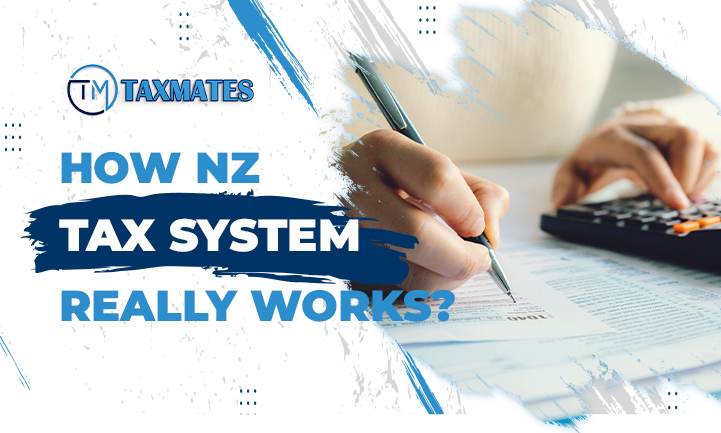Welcome to the complete guide to the Tax system nz! In this guide, we’ll break down everything you need to know about taxes in New Zealand, from the fundamental concepts to the practical aspects of filing your taxes and claiming refunds. Let’s start by understanding what taxes are and their significance in the context of New Zealand.
Understanding the different types of taxes in New Zealand is essential for complying with tax obligations and managing personal or business finances effectively. By familiarising yourself with the nz tax system, you can make informed decisions regarding investments, expenses, and tax planning strategies.
In the following sections of this guide, we’ll explore each type of tax in more detail, including tax rates, filing requirements, and tips for minimizing tax liabilities. Stay tuned for more insights into the New Zealand tax system!
What Are Taxes?
Taxes, simply put, are the lifeblood of a country’s economy. They are the funds collected by the government from individuals and businesses to finance public services like healthcare, education, infrastructure, and more. In New Zealand, taxes come in various forms, including income tax, GST (Goods and Services Tax), property tax, and customs duty.
The Basics of Taxation NZ
New Zealand Taxation operates on a self-assessment system, meaning taxpayers are responsible for accurately reporting their income and expenses to the Inland Revenue Department (IRD). Key components of the tax system include income tax, which is levied on personal and business income, and GST, a consumption tax on goods and services.
The basic principles of taxation in New Zealand, include key terminology, tax residency, and the taxation of various income sources.
Tax Residency:
Tax residency is a crucial concept that determines an individual’s or business’s tax obligations in New Zealand. Generally, individuals and companies are considered tax residents if they have a permanent home or are present in New Zealand for 183 days or more in any 12-month period.
Tax residents are subject to New Zealand income tax on their worldwide income, meaning they must declare and pay tax on income earned both domestically and overseas. Non-residents, on the other hand, are only taxed on income derived from New Zealand sources, such as income from employment performed in New Zealand, rental income from New Zealand properties, and profits from New Zealand businesses.
Taxable Income:
Taxable income refers to the portion of an individual’s or business’s income that is subject to taxation after deducting allowable expenses, deductions, and credits. In New Zealand, taxable income includes various sources such as:
- Salary and wages: Income earned from employment, including bonuses, commissions, and allowances.
- Investment income: Income generated from investments such as interest, dividends, rental income, and capital gains.
- Business income: Profits earned from operating a business, including sales revenue minus allowable deductions.
- Other income: Income from sources such as pensions, benefits, royalties, and overseas income (for tax residents).
It’s important to accurately calculate taxable income to ensure compliance with tax laws and determine the correct amount of tax payable.
Tax Rates:
New Zealand employs a progressive tax system, meaning that higher-income earners are subject to higher tax rates. As of the current tax year, the individual income tax rates for New Zealand residents are as follows:
- Up to $14,000: 10.5%
- $14,001 to $48,000: 17.5%
- $48,001 to $70,000: 30%
- Over $70,000: 33%
These rates apply to taxable income after accounting for any applicable tax credits and deductions. Additionally, there are different tax rates for certain types of income, such as trust income and income from portfolio investment entities (PIEs).
How Tax System Works in NZ
Ever wondered how the tax system works in New Zealand? It’s quite straightforward. Employers deduct PAYE (Pay As You Earn) tax from employees’ wages and salaries, while businesses and self-employed individuals file annual tax returns declaring their income and expenses. The IRD then calculates the tax owed or refunds due based on these filings.
When Are Taxes Due?
When are taxes due? This question often pops up, especially around tax season. In New Zealand, individuals typically file their tax returns by the end of March each year, while businesses have until either February or March, depending on their balance date. It’s crucial to meet these deadlines to avoid penalties and interest charges.
Understanding Tax Refunds
Ah, the sweet sound of taxes refund! Who doesn’t love getting money back from the taxman? In New Zealand, tax refunds occur when individuals have overpaid their taxes or are eligible for certain tax credits. Common reasons for refunds include overpaid PAYE tax, donations tax credits, and Working for Families tax credits.
The Role of Tax Advisors
In addition to accountants, tax advisors offer invaluable guidance on tax matters. Whether you’re a small business owner or an individual taxpayer, tax advisors can help you minimise your tax liabilities through strategic planning and compliance strategies. Accountants for taxation can navigate tax laws with confidence and peace of mind.
Tips for Tax Efficiency
Looking to optimise your tax situation? Here are some tips for tax efficiency:
- Keep organized records of your income and expenses.
- Take advantage of tax deductions and credits available to you.
- Consider investing in tax-efficient investment vehicles like KiwiSaver.
- Stay informed about changes to tax laws and regulations.
- Don’t hesitate to seek professional advice when needed.
Conclusion
In conclusion, the New Zealand tax system may seem daunting at first glance, but with the right knowledge and guidance, it’s entirely manageable.
By understanding the basics of taxation, knowing when taxes are due, and seeking assistance from professionals when needed, you can navigate the tax landscape with confidence and ease. Remember, taxes are simply a part of life, and with proper planning, you can make them work in your favor.

